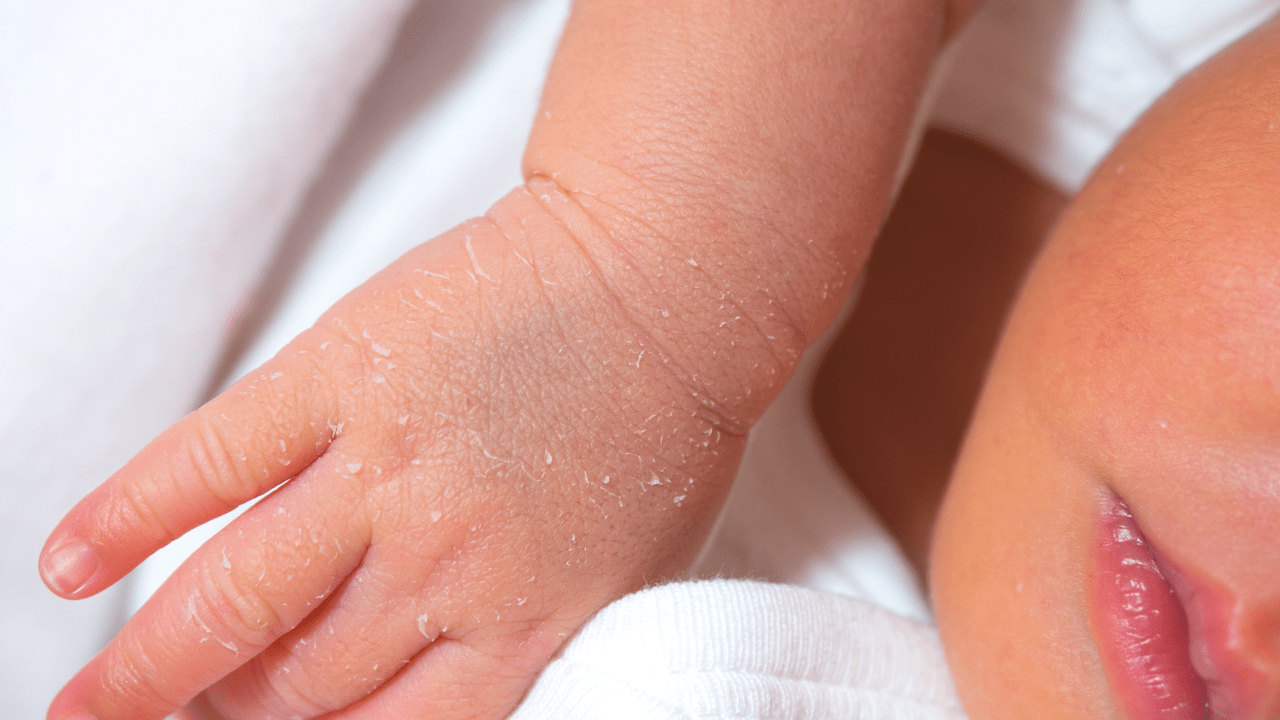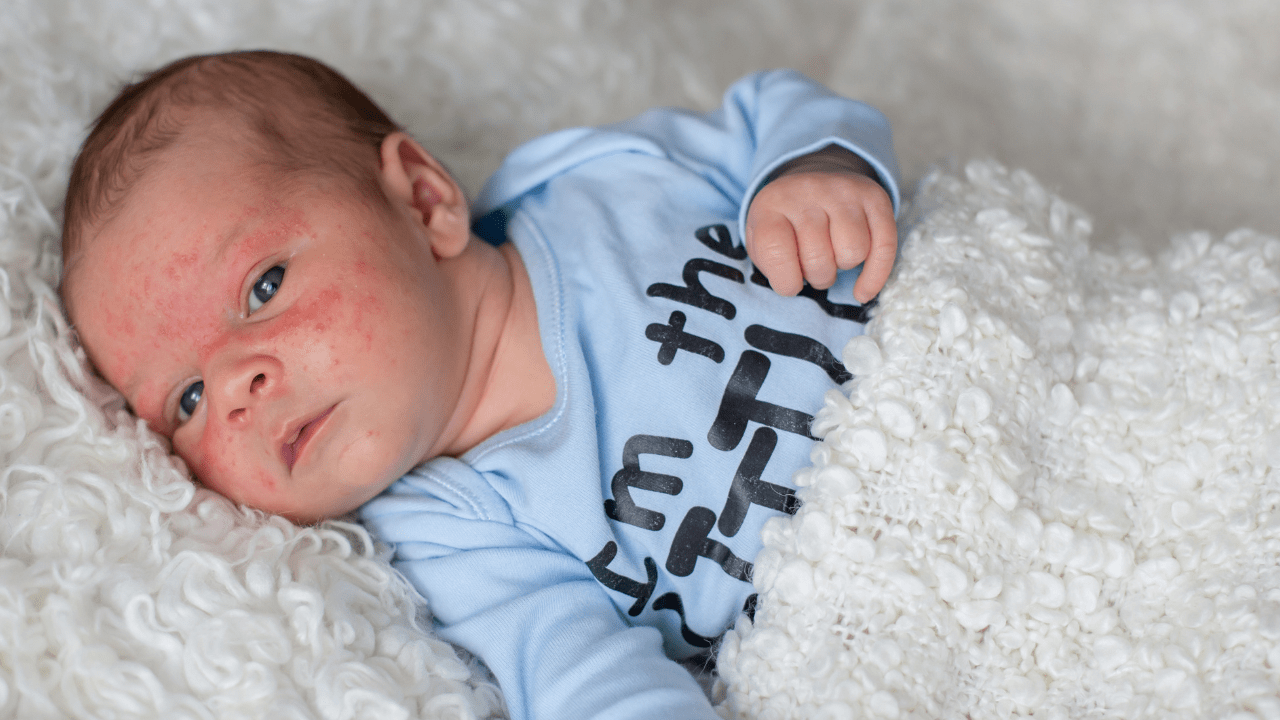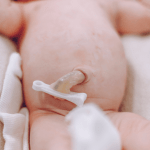Do you think babies come into the world with amazing and soft complexions? Not exactly. Your little bundle’s largest organ, the skin, the epidermis, will most likely be blotchy and bumpy for the first couple of months. Of course your baby is beautiful but your newborn is also kind of weird looking, skin-wise.
So here’s what to expect and how to protect your baby’s tender skin.
New parents to be, buckle up. Many babies arrive in the world covered in vernix (a greasy, cheese-like substance that protects a baby’s skin in utero from amniotic fluid) and other various fluids. You can expect this to take a day or two to wear or wash off.

At birth, fine hair called lanugo may cover your baby’s body for the first few weeks, especially if your baby was born prematurely. Their hands and feet are a reddish purple shade. A surprising fact about newborn skin: no matter your ethnicity or race, your baby’s skin will be reddish purple for the first few days, thanks to their circulation system that’s just getting up to speed. This is perfectly normal.
Your baby’s head might be an unusual shape. Babies born vaginally may have an elongated head (also called “cone head”) due to the pressure on their skull to fit through the birth canal. On a side note, babies born by C-section will have a rounder head. Their face could also be puffy due to fluid accumulation and the rough trip through the birth canal. This is also completely normal.
Besides being greasy and hairy, your baby’s skin will probably look blotchy, blemished and bumpy. About 40 percent of babies are born with milia, those white or yellow dots that look like tiny whiteheads and appear all over their little faces. They’re blocked pores so they’re not contagious and will clear up on their own in the first few months.
And about 1 in 5 newborns will break out in what is known as baby acne. The best thing you can do for baby breakouts is to leave them alone (no squeezing, no scrubbing) and it will usually clear up on its own.
There’s also a 50/50 chance your baby will develop what’s called a newborn rash… also Called flea bite rash and erythema toxicum by doctors. That’s a harmless, temporary red rash that can cover their itty-bitty body, but usually breaks out on the chest and back. This condition will likely disappear on its own in about two weeks.

Your newborn may also get breast swelling. Breast enlargement may occur in newborn boys and girls around the third day of life. In the first week, a milky substance, sometimes called witch’s milk, may leak from the nipples. This is related to the mother’s hormones and goes away in a few days or weeks.
So what can you do to not worry too much about your newborn’s skin?
A newborn’s skin will look a lot different than adult skin. Understand that skin is 30% thinner and not yet fully formed, and the conditions I mentioned are all completely normal. If you feel anxious or uncertain about any part of caring for your baby, don’t hesitate to call your doctor, other health care professionals, or family or friends who have had experience caring for a newborn.
Now, what can you do as a mom to help your baby skin?
Baby’s skin is sensitive and it is just developing its protective skin barrier. Therefore, two tips. You can wash their skin gently with warm water and make sure that there are no synthetic chemicals in soaps. Use only baby-safe, water-free, chemical-free baby products like lotions, balms, and moisturizers to help keep your baby’s skin healthy and developing. Especially water-free is important because all baby balms and moisturizers that contain water will contain harmful synthetic chemicals. Only water-free baby skin care can be made without do not contain harmful chemicals that can irritate baby’s skin.









